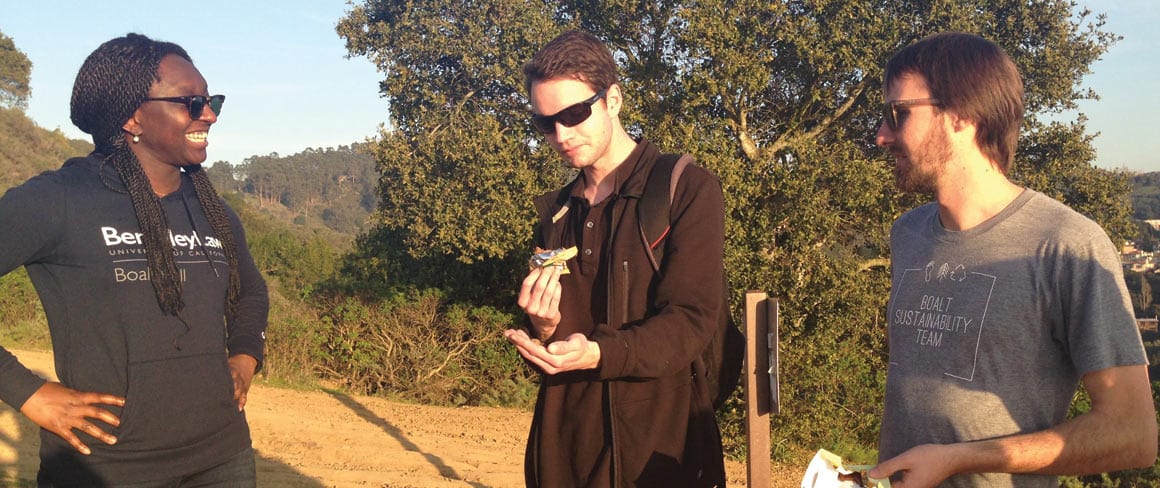
Continuing to expand hands-on learning opportunities, Berkeley Law launched two in-house clinics this past year.
Led by former California Deputy Attorney General Claudia Polsky ’96, the Environmental Law Clinic gives students enviable training opportunities and bolsters the school’s highly regarded environmental law program. The clinic will focus squarely on certain issues and choose projects that can make a real-world difference, identify leverage points that spark meaningful reform, and have a strong chance to succeed.
“I’m generally not drawn to producing another amicus brief on top of 15 others in a case,” Polsky says. “With rising temperatures, extraordinary pollution levels, and daily extinction of species, we need to make a bigger impact.”
The clinic tackled three projects last semester. One analyzed whether the Environmental Protection Agency should consider the monetary costs of cleaning downstream pesticide-polluted water when deciding whether to authorize pesticides for nationwide use—which could affect numerous regulatory decisions. Another worked on a California auto insurance program that could cut greenhouse gas emissions by 8 percent by reducing discretionary miles. A third sought to compel a state agency to disclose its health assessment and precautionary recommendations regarding cell phones’ electro-magnetic fields.
Clinic areas of emphasis include climate change, toxics reduction, realizing the human right to water and sanitation, creating green jobs, and facilitating access to nature.
After piloting within the East Bay Community Law Center, the Policy Advocacy Clinic (PAC) launched last fall as a stand-alone entity. Berkeley Law and public policy students collaborate on projects aimed at increasing social justice, equity, and inclusion for underserved clients.
Led by longtime clinical professor Jeffrey Selbin, the clinic released a report on the growing tendency to criminalize homelessness in California—which became a central piece of a legislative campaign to enact basic civil rights protections for homeless people.
PAC also works to eradicate burdensome juvenile court fees for low-income families. The clinic achieved a major victory in March, when its research led to a moratorium on the assessment and collection of such fees in Alameda County.
“We confront issues that disproportionately harm low-income people and people of color,” says Selbin, whose clinic also works to increase police accountability and to help low-income Californians better access vital programs within the Affordable Care Act. “It’s great to see students expanding their toolkits beyond traditional litigation and transactional skills in order to effect change.”
—Andrew Cohen
